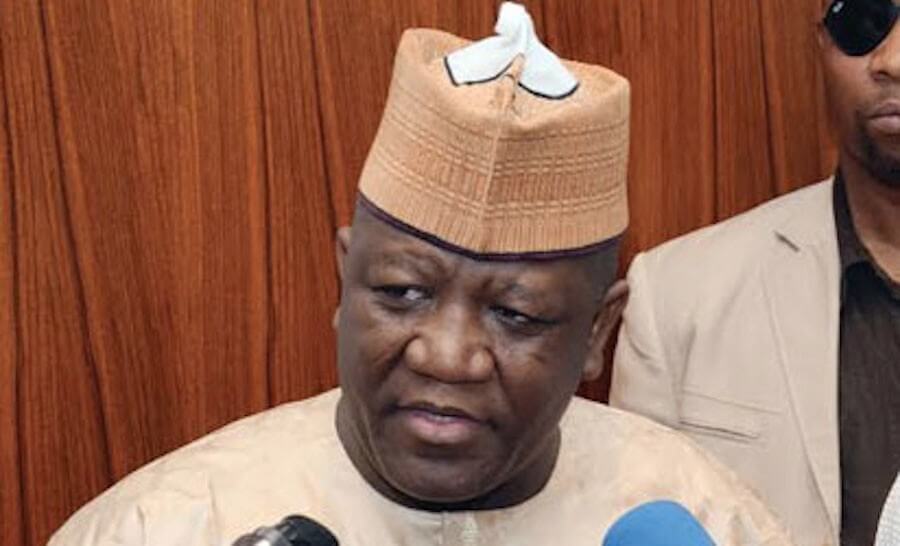
Nigeria’s 1200 legislators may escape criminal, civil prosecution for four years
Nigeria’s battle to exit the league of corrupt nations will suffer a setback as the Senate plans to amend the 1999 Constitution to protect lawmakers from all criminal and civil cases.
Civil society organisations yesterday warned that the proposal could erode confidence in the law, especially in the eyes of the global community that sees Nigeria’s political class as being ‘fantastically corrupt.’
They expressed the concern that with such immunity for all lawmakers at national and state levels, legislators will now be able to blatantly ask for bribes with impunity.
Immunity for Nigeria’s more than 1200 lawmakers at federal and state levels of government means they will escape criminal and civil prosecution for at least four years if the Senate succeeds in altering any part of the constitution for this purpose.
The Guardian obtained the Senate Bill number 342 yesterday and found that it has already been gazzetted and being given accelerated legislative processing.
The main objective of the amendment is to ensure that leaders and members of the legislature — particularly National and State Assemblies — are not subjected to any form of prosecution or legal persecution on account of their actions or statements in the course of carrying out their legislative functions.
Those opposed to the amendment, however, expressed the fear that it could be misconstrued to mean, “The Bill is simply seeking to give the presiding officers of the Senate protection against being prosecuted for their alleged involvement in the Senate rules forgery case.”
It was learnt that the body of Principal Officers of the National Assembly was able to clear the way for the amendment following the withdrawal of the Senate forgery suit by the office of the Attorney General of the Federation last October.
In withdrawing the suit against Senate President Bukola Saraki and his deputy, Ike Ekweremadu last October, the Ministry of Justice filed an application to amend the charges and attached the amended charges. In the new charges, only the former Clerk of the National Assembly, Mr. Salisu Maikasuwa, and a former deputy clerk, Mr. Ben Efeturi, were listed as accused persons.
Saraki and Ekweremadu had been charged alongside Maikasuwa and Efeturi for alleged forgery of the Senate Standing Orders, an action that was simply described as political persecution of the Senate President who is also being tried by the Code of Conduct Tribunal for alleged false asset declaration in 2001.
Sponsored by Senator Solomon Olamilekan, a member of the All Progressives Congress (APC) representing Lagos East Senatorial District in the Senate, the constitution amendment bill is aimed at strengthening “our democratic institutions (The Legislature) by guaranteeing the freedom of speech and protection of members of Parliament over words spoken and actions taken in the normal course of legislative business.”
Specifically, the bill seeks to amend Section 56 of the Constitution by adding new Sub-Sections which read: “No civil or criminal proceedings may be instituted against any member of the Senate or the House of Representatives in respect or words spoken before that House or a Committee thereof or in respect of words written in a report to that House or to any Committee thereof or in any petition, bill, resolution, motion or question brought or introduced by him therein.”
Further additions proposed by the bill reads: “No civil or criminal proceedings may be instituted against the President of the Senate or Speaker of the House of Representatives or any officer of the National Assembly in respect of an Act carried out in compliance with a resolution of the House or the exercise or any power conferred on or vested in him by the Standing Orders or the House or by the Constitution.”
According to Olamilekan’s Bill, the Constitution will be further amended by adding new Subsections (4) and (5) in Section 98 to read:
“No civil or criminal proceedings may be instituted against any member of a State House of Assembly in respect of words spoken before that House or a committee thereof; or in respect of words written in a report to that House or to any committee thereof or in any petition bill, resolution, motion or question brought or introduced by him therein.”
It was learnt that the earlier disagreement generated within the National Assembly on the matter has been resolved at regular meetings of the body of National Assembly principal officers where it was stated that the amendment was not just to benefit presiding officers but to protect all lawmakers from frivolous political machinations that could manifest through litigations.
The Human Rights Writers Association of Nigeria (HURIWA) described the proposed amendment as self-serving and an attempt to frustrate democracy in the country.
[ad unit=2]






